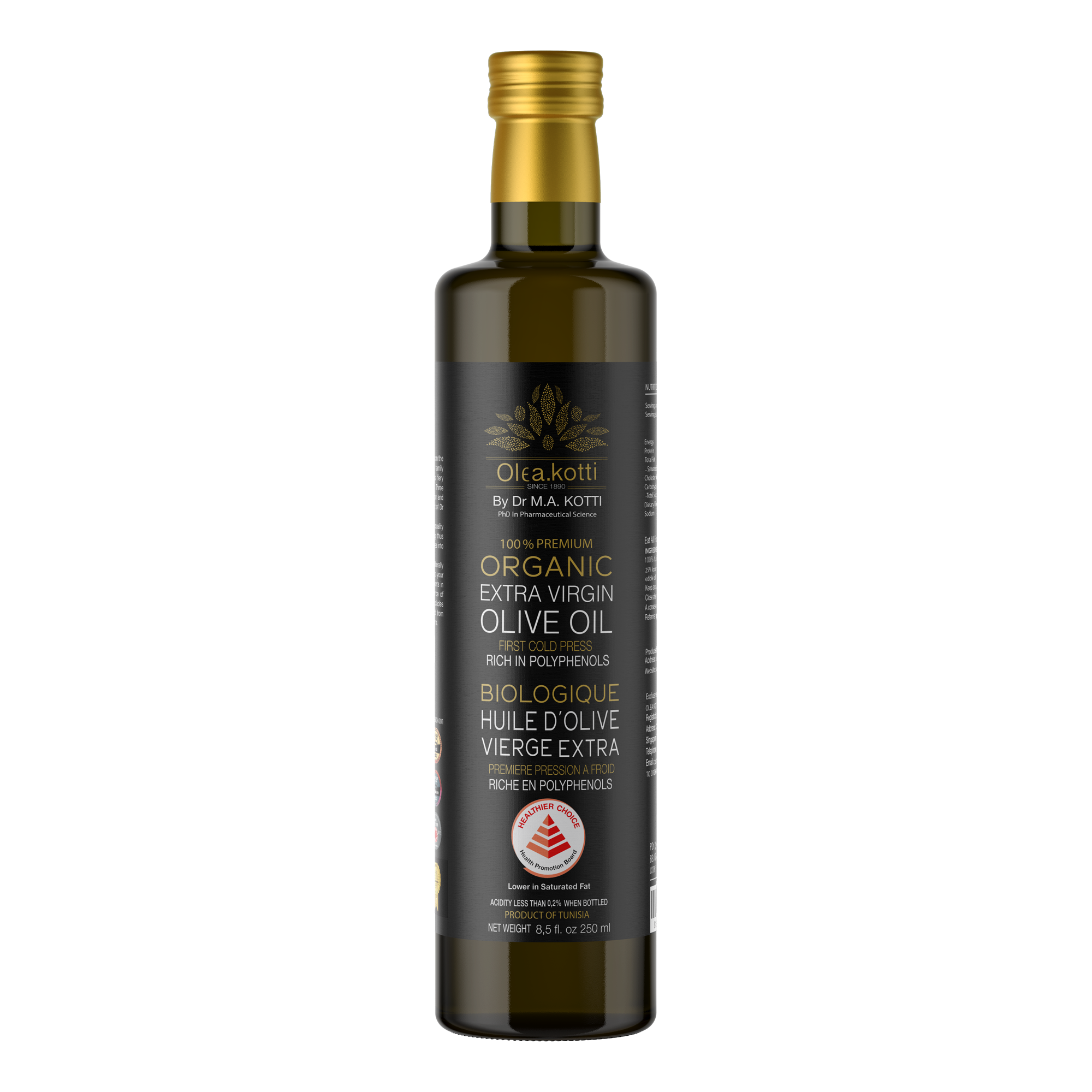What is The Ultimate Guide To Olive Oil: Health Benefits, Varieties, And Cooking Tips? The Ultimate Guide To Olive Oil: Health Benefits, Varieties, And Cooking Tips is a comprehensive resource that provides in-depth information on all aspects of olive oil, from its health benefits to its different varieties and cooking tips.
Editor's Notes: The Ultimate Guide To Olive Oil: Health Benefits, Varieties, And Cooking Tips have published today date. This guide is an essential read for anyone who wants to learn more about this versatile and healthy oil.
We've done the hard work of analyzing and digging through the information, so you can be sure that The Ultimate Guide To Olive Oil: Health Benefits, Varieties, And Cooking Tips we put together is accurate and up-to-date.
Key differences or Key takeways
| Characteristic | Extra Virgin Olive Oil | Virgin Olive Oil | Refined Olive Oil |
|---|---|---|---|
| Acidity | Less than 0.8% | Less than 2% | Less than 1% |
| Flavor | Fruity, peppery | Fruity, less peppery | Neutral |
| Color | Green to golden | Green to golden | Pale yellow |
| Uses | Drizzling, salads, dipping | Cooking, baking, frying | All-purpose cooking |
Transition to main article topics
Health Benefits of Olive Oil
Olive oil is a healthy fat that is rich in antioxidants. These antioxidants help to protect the body from damage caused by free radicals. Free radicals are unstable molecules that can damage cells and DNA. Olive oil has been shown to help reduce the risk of heart disease, stroke, cancer, and Alzheimer's disease.
Olive oil is also a good source of vitamin E. Vitamin E is an antioxidant that helps to protect the skin from damage. It also helps to boost the immune system.
Varieties of Olive Oil
There are many different varieties of olive oil, each with its own unique flavor and aroma. The most common varieties of olive oil are:
Extra virgin olive oil is the highest quality olive oil. It is made from olives that have been cold-pressed and have not been refined. Extra virgin olive oil has a fruity, peppery flavor.
Virgin olive oil is made from olives that have been cold-pressed, but it has been refined to remove some of the impurities. Virgin olive oil has a less fruity, less peppery flavor than extra virgin olive oil.
Refined olive oil is made from olives that have been crushed and then processed to remove the impurities. Refined olive oil has a neutral flavor.
Cooking Tips with Olive Oil
Olive oil is a versatile oil that can be used in a variety of cooking applications. It is a good choice for frying, baking, and roasting. Olive oil can also be used to make salad dressings, marinades, and sauces.
When cooking with olive oil, it is important to use the right heat setting. Olive oil has a low smoke point, so it should not be used over high heat. It is best to use olive oil for cooking at low to medium heat.
Olive oil is a healthy and versatile oil that can be used in a variety of cooking applications. It is a good source of antioxidants and vitamin E, and it has been shown to help reduce the risk of heart disease, stroke, cancer, and Alzheimer's disease.
FAQ
This FAQ section complements The Ultimate Guide To Olive Oil: Health Benefits, Varieties, And Cooking Tips by addressing common questions and misconceptions about olive oil.

Olivae 130 English edition - International Olive Council - Source www.internationaloliveoil.org
Question 1: What is the recommended daily intake of olive oil?
The recommended daily intake of olive oil varies depending on individual needs and dietary patterns. However, most experts recommend consuming 2-3 tablespoons of olive oil per day as part of a balanced diet.
Question 2: Is all olive oil the same?
No, there are various grades and types of olive oil available, each with distinct characteristics and uses. Extra virgin olive oil is considered the highest quality, followed by virgin and refined olive oil.
Question 3: How can I ensure I'm buying real olive oil?
To avoid adulterated or low-quality olive oil, look for products that are certified by reputable organizations such as the North American Olive Oil Association (NAOOA) or the International Olive Council (IOC).
Question 4: Can I cook with olive oil?
Yes, olive oil is a versatile cooking oil that can be used for sautéing, grilling, baking, and more. Its high smoke point makes it suitable for various cooking methods.
Question 5: What are the health benefits of olive oil?
Olive oil is rich in antioxidants and monounsaturated fats, which have been linked to numerous health benefits, including reduced risk of cardiovascular disease, inflammation, and certain types of cancer.
Question 6: How should I store olive oil?
Store olive oil in a cool, dark place away from heat and light. Use dark-colored glass bottles or opaque containers to prevent oxidation and maintain its quality.
By understanding these key points, consumers can make informed decisions about olive oil and reap its many benefits.
Read the The Ultimate Guide To Olive Oil: Health Benefits, Varieties, And Cooking Tips for a comprehensive understanding of olive oil.
Tips
Incorporating olive oil into daily cooking routines offers numerous health benefits. Consider these tips to enhance the use and enjoyment of olive oil:
Extra virgin olive oil is the purest and healthiest type, suitable for drizzling over salads, dips, and bruschetta. Refined olive oil has a neutral flavor and can withstand higher cooking temperatures, making it ideal for sautéing, frying, and baking.
Light and heat can degrade olive oil. Store it in a cool, dark place in an opaque bottle or container to preserve its flavor and quality.
Avoid高温烹饪特级初榨橄榄油,因为它会导致该油失去其有益的营养物质。中低温烹饪可以保留橄榄油的健康特性。
Olive oil adds richness and flavor to sauces and dressings. It can be combined with herbs, spices, lemon juice, and vinegar to create flavorful marinades and dips.
Roasting or grilling vegetables with a drizzle of olive oil enhances their flavor and adds a crispy texture. The oil helps caramelize the vegetables, bringing out their natural sweetness.
In baking recipes, olive oil can be substituted for butter or other fats. It adds a moist texture to cakes, cookies, and muffins while providing a healthier alternative.
While olive oil is a healthy fat, it is still important to consume it in moderation. The recommended daily intake is 2-3 tablespoons for adults.
Olive oil comes in various varieties, each with a unique flavor and aroma. Experiment with different types to find the one that best suits personal preferences.
Incorporating these tips into cooking practices maximizes the benefits of olive oil and enhances overall health and well-being.
The Ultimate Guide To Olive Oil: Health Benefits, Varieties, And Cooking Tips
Olive oil, a culinary staple and a cornerstone of the Mediterranean diet, offers a wealth of health benefits, culinary versatility, and cultural significance. This guide delves into the essential aspects of olive oil, exploring its nutritional value, diverse varieties, and practical cooking techniques.
- Health Benefits: Rich in antioxidants and heart-healthy fats
- Varieties: From delicate extra virgin to robust lampante
- Production: Cold-pressed or expeller-pressed techniques
- Flavor Profiles: Fruity, spicy, or buttery notes
- Storage and Shelf Life: Cool, dark conditions for optimal preservation
- Culinary Uses: Salads, dressings, roasting, baking
The health benefits of olive oil stem from its high concentration of antioxidants, including polyphenols and flavonoids, which combat oxidative stress and inflammation. Its monounsaturated fats, primarily oleic acid, have been linked to reduced risk of cardiovascular disease and improved cholesterol profiles. Furthermore, olive oil contains vitamin E, a powerful antioxidant that protects cells from damage.
Olive oil's versatility in cooking is unparalleled. Extra virgin olive oil, with its delicate flavor, is ideal for drizzling over salads, while robust lampante oil is better suited for hearty dishes. Its high smoke point makes it a preferred choice for roasting and sautéing. By understanding the diverse flavor profiles of different varieties, home cooks can elevate their culinary creations.

Multi-Award Winning Olea Kotti Organic Extra Virgin Olive Oil - Source oleakotti-oliveoil.com
The Ultimate Guide To Olive Oil: Health Benefits, Varieties, And Cooking Tips
The ultimate guide to olive oil is a comprehensive resource that provides detailed information on the health benefits, varieties, and cooking tips associated with this versatile and flavorful ingredient. This guide serves as an invaluable resource for home cooks, health enthusiasts, and anyone seeking to incorporate more olive oil into their diet and culinary repertoire.

The Health Benefits of EVOO – Srendpt - Source www.srendpt.com
Understanding the connection between the different components of this guide is crucial for fully appreciating the significance of olive oil. The health benefits section explores the rich nutritional profile of olive oil, highlighting its anti-inflammatory properties, heart-health benefits, and potential role in reducing the risk of certain chronic diseases. This information empowers individuals to make informed choices about their health and well-being.
The varieties section delves into the diverse range of olive oil types available, each with its unique flavor profile and culinary applications. From delicate extra virgin olive oil to robust and peppery varieties, the guide provides a comprehensive overview of the characteristics and uses of each type. This knowledge enables home cooks to select the most suitable olive oil for their dishes, enhancing the flavor and complexity of their meals.
The cooking tips section offers practical guidance on how to incorporate olive oil into various cooking methods. It covers essential techniques such as sautéing, roasting, and baking, providing valuable insights into the optimal use of olive oil to achieve desirable results. By following these tips, readers can maximize the flavor and health benefits of olive oil in their everyday cooking.
In conclusion, the ultimate guide to olive oil is an indispensable resource that empowers individuals to make informed choices about their health and culinary experiences. The comprehensive exploration of health benefits, varieties, and cooking tips provides a deep understanding of this versatile ingredient, enabling readers to harness its full potential in their diet and cooking.
| Health Benefits | Varieties | Cooking Tips |
| Antioxidant and anti-inflammatory properties | Extra virgin, virgin, refined | Sautéing, roasting, baking |
| May reduce the risk of heart disease | Light, pure | Marinating, dressings, finishing dishes |
| May improve blood sugar control | Flavored | Storing, handling, and substitution |